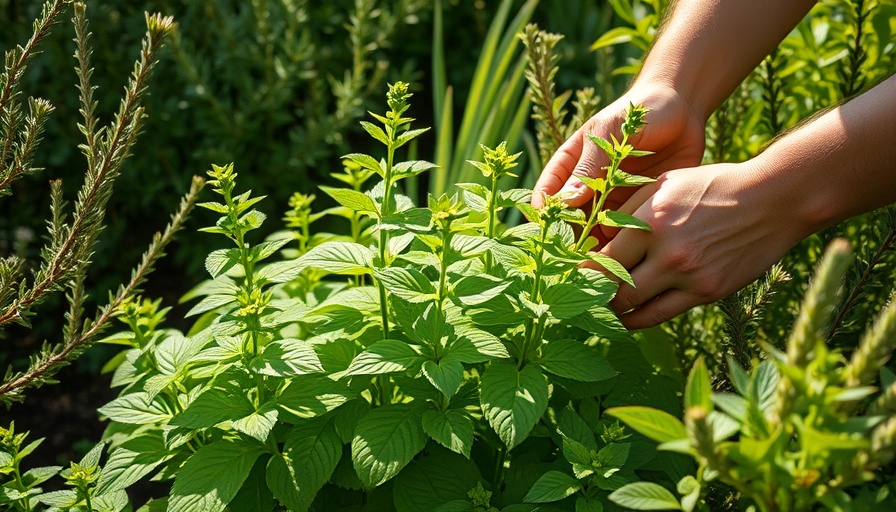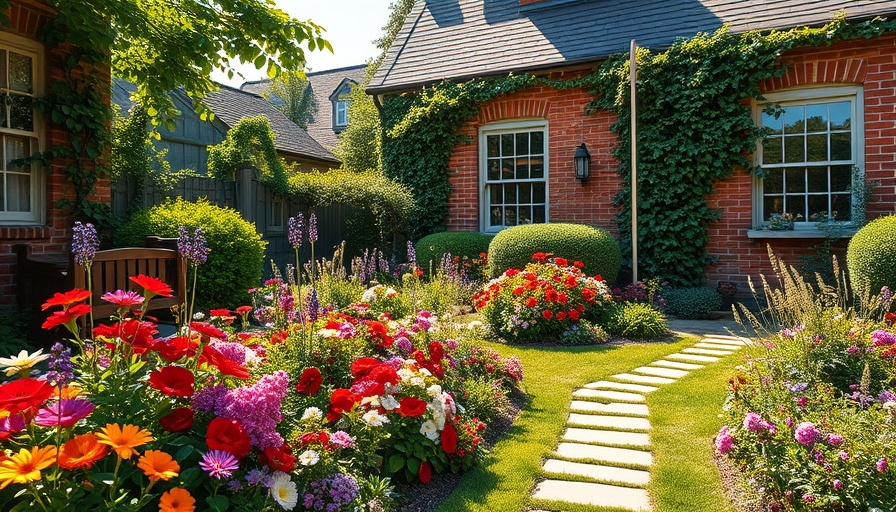
Why Lemon Balm is the Perfect Addition to Your Garden
Imagine stepping into your garden and greeting a warm wave of citrusy fragrance. Lemon balm, with its vibrant green leaves and sun-kissed aroma, is not just a feast for the senses; it’s a powerhouse of benefits. This herb is an excellent choice for home gardeners looking to enhance their outdoor space while also reaping incredible rewards.
The Allure of Lemon Balm
Not only does lemon balm add a touch of brightness and cheer to your garden, but it also plays a multifunctional role. From culinary uses to health benefits, this sunshine herb works hard. Whether you’re a novice gardener or a seasoned pro, lemon balm fits seamlessly into any garden plan.
Unleashing the Benefits of Growing Lemon Balm
Lemon balm is more than a beautiful plant. It boasts numerous health benefits, particularly for those looking to elevate their wellness routines. It is known for its calming effects, making it a popular choice for teas aimed at reducing stress. With the right gardening tips, you can cultivate lemon balm easily, enjoying a bountiful harvest right from your backyard.
Historical Context: The Heritage of Lemon Balm
Traditionally used in medicine and culinary practices since ancient times, lemon balm has a rich history. The ancient Greeks and Romans revered it for its healing properties. It’s fascinating to think about how the same plant has survived through centuries and cultures, adapting and thriving alongside us. By planting lemon balm, you’re not just growing a herb; you’re cultivating a piece of history.
How to Grow Lemon Balm Successfully
Here’s a quick rundown on successfully growing this herb. Lemon balm thrives in well-drained soil and prefers a sunny location, although it can tolerate some shade. Start by selecting healthy seedlings or seeds, and ensure you water them adequately but not excessively. Regular pruning encourages lush growth and enhances flavor.
Adding Value with Lemon Balm: Culinary and Medicinal Uses
This herb isn’t just a pretty addition to your garden; it has practical and delicious applications in your kitchen. Known for its lemony flavor, lemon balm can be used in teas, salads, and desserts. It also holds potential medicinal uses, traditionally thought to help with digestion and sleep – a double win!
Embracing the Future: Trends in Gardening
As the gardening landscape changes, there’s a noticeable shift towards space-efficient, multipurpose plants like lemon balm. This aligns with current trends focusing on sustainability and herbal remedies, making it a key player for those looking to grow their own food while also focusing on well-being.
Practical Tips for Engaging with Lemon Balm
To create a larger yield, consider companion planting with other herbs such as mint or rosemary. This not only frees up space but can also enhance flavors. Additionally, drying the leaves gives you access to your homegrown herb all year round. Why not create your own signature tea blend or herb-infused oil? These extra touches can elevate your culinary experiences and impress guests.
Common Misconceptions About Lemon Balm
Some gardeners might think that growing herbs is only for the summer. However, lemon balm can be a hardy perennial in many climates, returning year after year. It’s easy to cultivate and requires minimal upkeep. This herb can be a reliable friend in your garden, especially when it’s bundled with the right knowledge and care.
The Bottom Line: Grow Lemon Balm for a Bright Future
If you're looking to add character, flavor, and wellness benefits to your outdoor living space, lemon balm should be your go-to herb. It's simple to grow, offers a myriad of uses, and connects you to both nature and history. Embrace this sunshine herb and watch as your garden transforms, adding value to your home and life.
 Add Row
Add Row  Add
Add 






Write A Comment